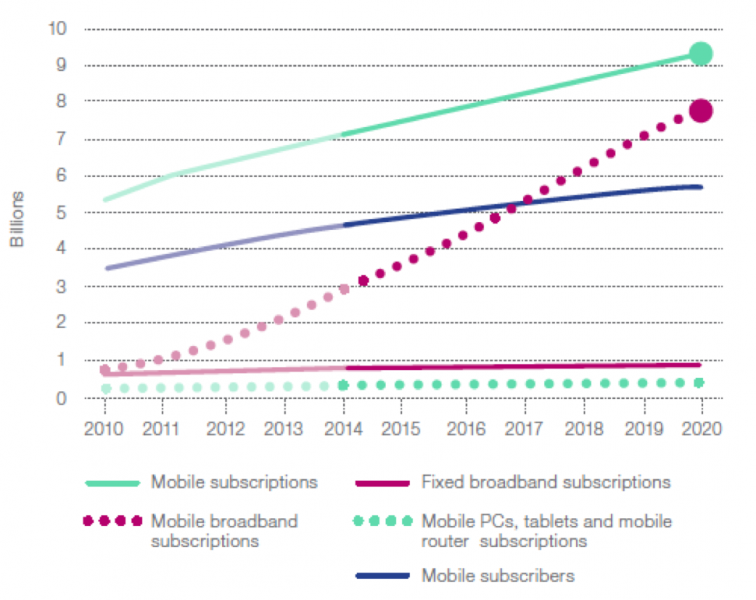Three Billion Smartphone Customers Are Ready. Now Go Make Them Successful.
If I hear one more story about "the next big thing" only to find it's a niche product like a skateboard or a toy like a consumer drone or a convenience tool like a smartwatch or a fancy way to open a door or detect smoke, I think I'll puke. The last big product innovation was smartphones. And it was a doozy. Most people don't really need another gadget. They need the game-changing gadget they have to do more.
I believe we are still at the beginning the biggest technology-fueled shift we've every seen, the mobile mind shift. A smartphone in the hands over three billion people is a game-changer. But only if we embrace it as a platform to deliver everything someone needs in the mobile moments of their day.
On your smartphone today:
- Can you always get a great Internet connection . . . you can afford?
- Can you manage every aspect of your complex digital life?
- Can you vote?
- Can you schedule a doctor appointment, renew your dog license, apply for a mortgage, replenish your cupboard, or do your job?
I'm guessing you can't. But with 4.3 billion mobile broadband subscriptions (and less than one billion fixed broadband subscriptions) by 2017, the future belongs to the smartphone (see Figure).

Source: Broadband Commission, The State Of Broadband 2015 report.
No, desktop browsers aren't going away. And no, not every digital activity is smartphonable. But most are. Many more than today. We're inured to hassles of interacting with even well-designed mobile web experiences. But they're a hassle. And many websites (two thirds of corporate web pages according our studies) aren't phone fun. (Heck, most of them aren't even desktop fun.) There's much good hard work to do.
I estimate that we have done less than 10% of the total work needed to complete the mobile mind shift. We haven't mobile-enabled the entire customer journey. We haven't brought context to every mobile moment. We haven't even made mobile engagement the primary goal of the digital (read: web) teams.
Getting there will take huge investments in broadband and better (and more secure) performance, in a complete redesign of digital business services, in mobile websites that feel like apps, in organizational and funding models that put customers at the center of the experience. We estimate that firms globally will spend $189 billion by 2017 in mobile engagement, that mobile will drive 1/3rd of all tech spending. Smartphones are the platform for digital business, and they'll keep us occupied for many years to come.
Let the niche products come. Indeed, embrace them as digital touchpoints. But don't lose sight of the big game: to succeed in the mobile moments that matter. On smartphones.
